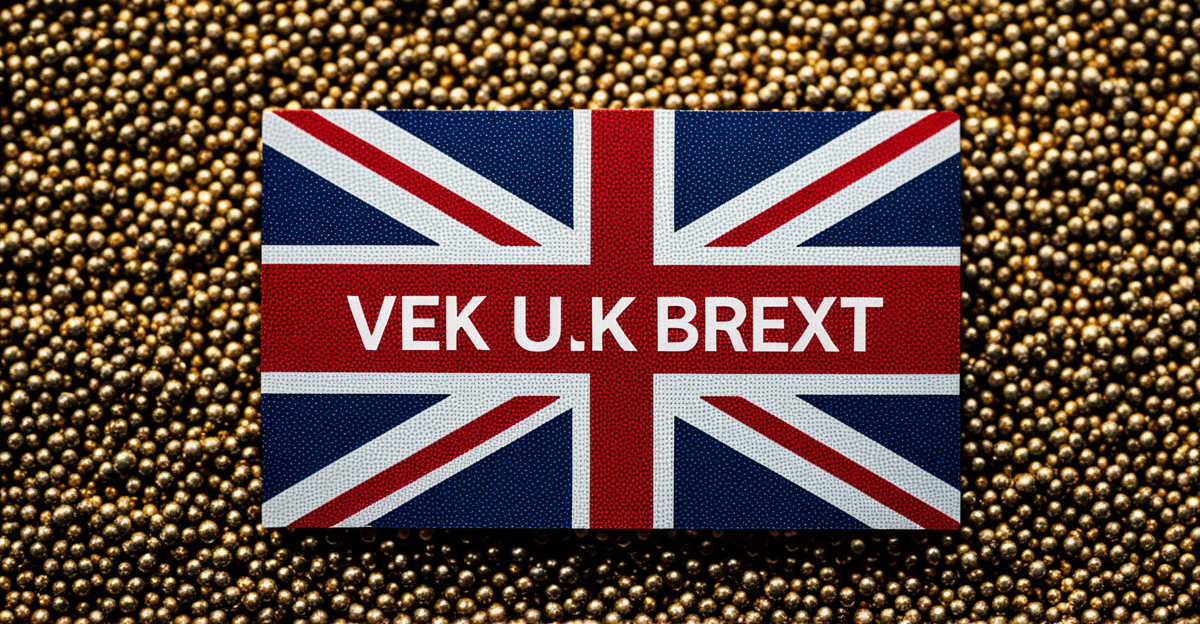Immediate Legal Impacts and Regulatory Shifts
The post-Brexit legal changes have significantly reshaped the regulatory landscape for UK businesses. One of the most immediate shifts involves the transfer of regulatory oversight from EU bodies to UK authorities, requiring businesses to quickly adapt to new compliance frameworks. For example, agencies such as the Financial Conduct Authority now assume responsibilities previously managed by EU institutions.
This shift demands prompt adaptation to UK business regulation alterations, especially in sectors like finance, pharmaceuticals, and food safety. Companies must align their compliance policies with the UK’s bespoke rules rather than the EU’s, which introduces complexity in ongoing operations. Additionally, firms face the challenge of Brexit compliance regarding product standards and certifications, which no longer carry automatic recognition across borders.
Topic to read : What Strategies Can Ensure Your UK Business Stays Compliant with Legal Changes?
To meet these requirements, businesses need to closely monitor legislative updates and refine their compliance strategies. Timely adjustments reduce risks of penalties and ensure smoother market access. Understanding the recalibrated regulatory ecosystem is essential for thriving post-Brexit, as delays in compliance can disrupt supply chains and contractual relations. Overall, navigating these immediate legal impacts equips UK enterprises with resilience in the evolving Brexit business environment.
Trade Laws and Market Access Considerations
The UK-EU Trade and Cooperation Agreement governs current trade laws between the UK and EU. It replaces previous EU membership benefits with new conditions that UK businesses must master to maintain market access. Central to post-Brexit trade agreements are rules on tariffs and customs obligations. While tariffs are limited under this agreement, strict customs regulations now require thorough documentation and checks at borders.
This might interest you : What legal obligations do UK businesses have regarding workplace safety?
Customs controls have intensified, affecting supply chains by introducing delays and increasing administrative burdens. Importers and exporters must be adept at navigating new customs declarations, product origin rules, and VAT adjustments. Failure to meet these obligations risks shipment refusals, fines, or costly delays.
To reduce ongoing customs regulations risks, businesses should implement robust compliance systems tailored to the new UK-EU trade law environment. This includes investing in staff training and digital tools to manage border checks efficiently. Understanding subtle nuances within these post-Brexit trade agreements, such as specific product classifications or quota limits, is essential for smooth operations.
In sum, the evolving customs landscape demands vigilance and adaptation for UK firms trading with the EU, ensuring continued access to key markets without disruption or penalty.
Immediate Legal Impacts and Regulatory Shifts
Navigating post-Brexit legal changes demands swift adjustment from UK businesses. The most significant shift involves regulatory oversight transferring from EU bodies to UK authorities like the Financial Conduct Authority. This change means businesses must comply with UK business regulation frameworks uniquely tailored post-Brexit, rather than relying on EU standards.
Brexit compliance now extends beyond paperwork; it requires revising internal policies to meet altered product standards, safety norms, and certification processes. For instance, certifications once harmonized across the EU need reevaluation under UK-specific rules, affecting sectors from pharmaceuticals to manufacturing.
Immediate compliance is critical because delays escalate risks of legal penalties and supply chain disruptions. Staying updated on legislative updates is essential for accurate risk management. Firms should develop robust compliance protocols synchronized with the evolving UK regulatory climate. In practice, this means investing in training and compliance audits frequently to pinpoint gaps in alignment with the new post-Brexit legal changes.
By proactively embracing these regulatory shifts and integrating them into operational strategies, UK businesses bolster resilience and maintain competitiveness, avoiding costly setbacks during this transitional phase.
Immediate Legal Impacts and Regulatory Shifts
Post-Brexit legal changes have transferred regulatory oversight from EU institutions to UK authorities such as the Financial Conduct Authority. This shift means UK businesses must now comply exclusively with UK business regulation, which differs substantially from previous EU frameworks. Brexit compliance requires immediate adjustments in internal policies, especially regarding product standards and certifications repatriated under UK control.
Major legislative changes have introduced new certification processes where prior EU-wide recognition no longer applies. Companies in sectors like pharmaceuticals or manufacturing face urgent needs to realign compliance frameworks with UK-specific requirements. What are the immediate compliance requirements? Firms must quickly update operational procedures, train staff, and conduct compliance audits to prevent penalties or disruptions.
These post-Brexit legal changes also affect ongoing regulatory monitoring. Businesses must stay vigilant to legislative updates, as failure to adapt timely risks supply chain breakdowns and legal sanctions. Effectively, Brexit compliance now demands a proactive, dynamic approach to align strategies continually with the evolving UK regulatory environment. Integrating these adaptations early strengthens business resilience and competitiveness in the post-Brexit marketplace.
Trade Laws and Market Access Considerations
Navigating UK-EU trade law after Brexit requires businesses to master new protocols under post-Brexit trade agreements. Central to these are changes in customs regulations that have introduced comprehensive border checks and documentation needs. Although tariffs remain generally limited by the UK-EU Trade and Cooperation Agreement, the increased complexity of customs procedures affects supply chains directly.
Businesses must adapt to stricter customs controls, including mandatory declarations and compliance with product origin rules to qualify for tariff exemptions. Importers and exporters face increased scrutiny, risking shipment delays, refusals, or fines if regulations are not met. This shift demands robust systems and close monitoring to ensure consistent adherence to evolving customs regulations.
To address these challenges, firms should deploy tailored compliance frameworks that incorporate thorough staff training, investment in digital technologies, and updated operational processes. Mastery of subtle trade law details—such as quota limits and specific product classifications—proves essential for mitigating risks and maintaining smooth market access.
Overall, effective management of post-Brexit trade agreements and customs obligations allows UK businesses to minimize disruptions and sustain commercial relationships across the increasingly regulated UK-EU border.
Immediate Legal Impacts and Regulatory Shifts
Post-Brexit legal changes have introduced significant legislative reforms that UK businesses must navigate urgently. The most profound shift concerns regulatory oversight, which now rests with UK authorities rather than EU institutions. This transfer demands immediate Brexit compliance to align with the UK business regulation framework, which operates independently and often diverges from previous EU rules.
What are the immediate compliance requirements? Firms must revise policies on product standards, certifications, and safety regulations that were formerly harmonised across the EU. For example, products certified under EU schemes require renewed assessment under UK-specific processes, complicating market access and operational continuity.
Moreover, businesses face ongoing monitoring obligations to keep pace with legislative updates in the post-Brexit regulatory landscape. Timely adaptation reduces the risk of legal penalties, supply chain interruptions, and reputational damage. Proactive compliance efforts include training staff, conducting audits, and updating internal controls aligned to post-Brexit legal changes.
In essence, Brexit compliance entails a dynamic, detail-oriented approach to internal governance. Firms that integrate these adjustments swiftly position themselves for stability and competitive advantage amid evolving UK business regulation demands.
Employment Law Adjustments and Workforce Challenges
Post-Brexit changes to UK employment law have significantly altered the landscape for both employers and employees, notably impacting the post-Brexit workforce composition. One pressing question is: how are hiring and employment rights of EU nationals in the UK affected? Since Brexit, EU nationals no longer enjoy automatic freedom of movement or work rights, requiring them to comply with UK immigration rules, such as securing visas under the points-based system.
This shift means employers must adjust recruitment strategies and verify eligibility rigorously to avoid penalties. Employment contracts often need amendments to reflect the new legal context, incorporating clauses related to immigration status and possible future changes in work eligibility.
Moreover, compliance with UK employment law now involves ongoing monitoring of immigration policies and adapting HR practices accordingly. For instance, companies must navigate right-to-work checks and provide support for EU nationals’ settled status applications to maintain workforce stability.
The complexity of these changes emphasizes the need for proactive management. Businesses benefit from legal guidance and employee communication strategies to ensure smooth transition and compliance in workforce-related matters within the evolving post-Brexit regulatory framework.
Immediate Legal Impacts and Regulatory Shifts
Post-Brexit legal changes have fundamentally shifted regulatory oversight from EU institutions to UK authorities, such as the Financial Conduct Authority. This transfer mandates immediate adaptation to UK business regulation frameworks, which now differ substantially from those previously governed by EU law.
What immediate compliance requirements arise? Firms must revise policies on product standards, certifications, and safety regulations that were formerly harmonised across the EU. For example, certifications valid under EU frameworks no longer guarantee acceptance in the UK; companies must undergo UK-specific approval processes. Similarly, ongoing Brexit compliance requires dynamic monitoring of legislative updates to ensure internal controls remain aligned with evolving rules.
These post-Brexit legal changes create urgency around updating operational procedures, retraining staff, and conducting frequent compliance audits. Failure to meet these demands risks not only legal penalties but also supply chain disruptions and reputational damage. Therefore, businesses should embed a proactive approach into their governance structures, anticipating further regulatory divergence.
In essence, Brexit compliance now means embracing a new legal environment governed solely by the UK, demanding meticulous realignment with the unique UK business regulation landscape.







